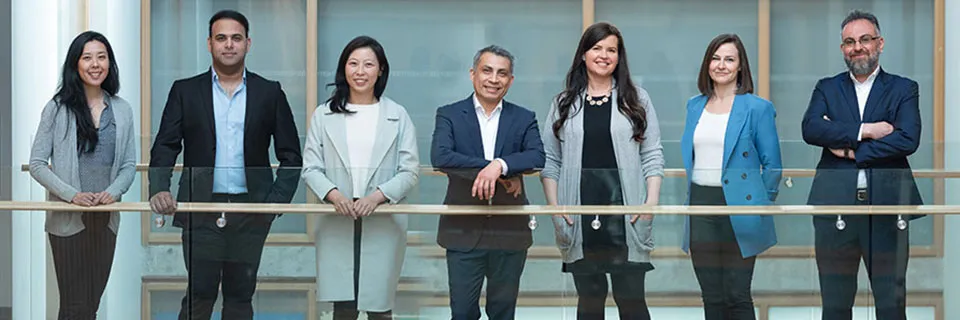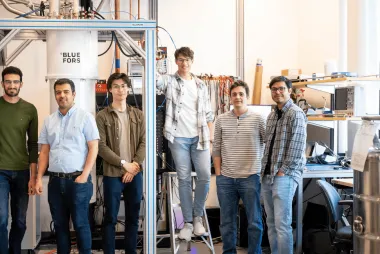A multimillion-dollar multi-year partnership with Rogers Communications exemplifies how UBC’s Institute for Computing, Information and Cognitive Systems (ICICS) successfully collaborates with industry to develop innovative technology solutions, drawing on UBC’s expertise and making full use of the campus as a living lab.

This is just one example of how organizations that partner with ICICS reduce their research-to-impact timelines and maximize value – generating bottom-line returns and contributing to the betterment of our world.
Institute for Computing, Information and Cognitive Systems
Using the campus as a living lab

In 2018, two years before it was the first company to launch 5G in Canada, Rogers Communications formed a partnership with UBC to advance 5G innovations.
The goal was to test and better understand how 5G might revolutionize our lives, from how we communicate and travel, to how we can improve public safety, provide better health care, manage natural resources and push the boundaries of augmented and virtual reality.
“The UBC Vancouver campus is a city within a city, which means we are an independent community and not led by the City of Vancouver’s mayor and council,” says Raymond Chau, ICICS’s Program Manager of UBC+Rogers 5G Research.
“Our industry partners, like Rogers, can leverage the flexibility of our campus as a living lab to support applied research projects for testing out their ideas and assessing market potential before investing in product engineering.”
In November 2019, UBC became Canada’s first 5G campus, incorporating standalone network infrastructure and a data centre to test 5G applications in a real-world setting. Sensors across campus measure air quality, traffic flow, earthquake events and the health of natural assets, and specific labs are diving deep into applications in AR&VR, human teleoperations and mining.
Agile approach to research and product development

5G is a fascinating example of a technology whose true market potential has yet to be understood in Canada. That’s where the partnership between UBC and Rogers is adding value.
“Research and product development historically happen in silos, with different groups looking into discrete elements and then reporting back months later,” says Chau.
“Through this partnership with Rogers, we’ve operationalized a process that brings together multidisciplinary teams from the outset, including business analysts, scientists, engineers and behavioural scientists and others. This approach minimizes the unknowns and increases the likelihood of success.”
The ICICS team uses an agile approach for its industry-sponsored research projects, with meetings every two weeks to incorporate learnings and pivot as needed. It ensures the pace of research outcome generation is fast.
“We’re de-risking application of emerging technologies and accelerating the translation to economic and social impact,” says Chau.
He offers several examples of how this approach has increased the business readiness of projects far faster than would be possible in traditional development models.
“When we were in the customer discovery stage we identified and qualified a proof of concept opportunity in less than two weeks based on our primary research,” says Chau. “Six months later we were in project planning with the stakeholders.”
In this case, the key stakeholder was BC Wildfire Service, and the organization and Rogers are now collaborating with municipalities on important work to leverage 5G to improve public safety by preventing, detecting and managing wildfires.
“Working together with Rogers, we are equipping forests with satellite-connected sensors and 5G AI cameras,” Dr. Mathieu Bourbonnais, Assistant Professor, Department of Earth, Environmental and Geographic Sciences, UBC Okanagan.
“These new technologies will expand the reach and capabilities of our existing network of 5G IoT sensors, giving us real-time data that can provide the foundation for an early warning system for wildfires and improve public safety.”
ICICS’s framework results in actionable impact pathways

Where UBC adds competitive value to the partnership is in the early stages of development – in discovery and idea generation, scoping and risk assessment, and business case development.
Flexible teams are created, bringing in specific expertise from across faculties and disciplines to de-risk projects and inform industry partners through their product development decision gates.
“Going from idea to impact is hard,” says Chau. "And that’s why leaders in industry choose to partner with ICICS."
“They know we have a structured framework to guide the process – all backed up by experts in the field and the infrastructure needed to test and validate new products and services.”





